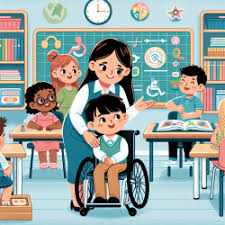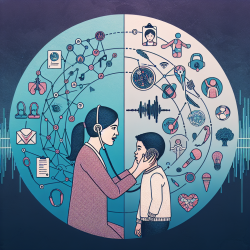Introduction
Recent research published in Scientific Reports has provided new insights into how Temporal Lobe Epilepsy (TLE) affects auditory-motor integration, particularly in the context of voice control. This study is crucial for speech-language pathologists as it highlights the unique challenges faced by individuals with TLE and suggests potential pathways for therapeutic interventions.
Understanding the Research
The study involved 28 patients with TLE and 28 healthy controls. It examined how these groups responded to altered auditory feedback during vocalization. The key findings were:
- Patients with TLE exhibited significantly larger vocal responses to pitch errors compared to healthy controls.
- There was a positive correlation between the variability of baseline voice and the magnitude of vocal responses in TLE patients.
- Patients with TLE showed smaller P2 responses in event-related potentials (ERPs), which correlated negatively with the duration of the disease.
- Graphical network analyses revealed disrupted neuronal networks in TLE patients, with increased clustering coefficients and path lengths.
Implications for Speech Therapy
These findings have significant implications for speech therapy practices. Here are some strategies that practitioners can consider:
- Customized Feedback Mechanisms: Given the heightened vocal response to pitch errors, therapy can incorporate real-time auditory feedback that helps patients modulate their vocal output more effectively.
- Focus on Auditory Processing: Since TLE affects auditory processing, therapies should include exercises that enhance auditory discrimination and integration.
- Longitudinal Monitoring: Regular assessment of vocal and auditory responses can help track disease progression and adjust therapy plans accordingly.
- Network-Based Approaches: Understanding the disrupted network configurations can guide the development of interventions that aim to restore efficient neural connectivity.
Encouraging Further Research
While this study provides a foundation, further research is needed to explore the longitudinal effects of TLE on auditory-motor integration and the efficacy of different therapeutic approaches. Practitioners are encouraged to contribute to this growing body of knowledge by documenting and sharing their clinical experiences and outcomes.
Conclusion
The study on TLE and auditory-motor integration offers valuable insights for speech-language pathologists. By integrating these findings into practice, therapists can better address the unique needs of individuals with TLE, ultimately improving their communication abilities and quality of life.
To read the original research paper, please follow this link: Temporal Lobe Epilepsy Alters Auditory-motor Integration For Voice Control.










